[Biscuitroots and Desert Parsleys: The Genus Lomatium in the Columbia River
Gorge of Oregon and Washington]
Biscuit Root, Bigseed Biscuitroot, Bigseed Lomatium, Gray-leaf Desert Parsley,
Large-fruit Desert Parsley, Large-fruited Lomatium
Lomatium macrocarpum
Synonyms: Cogswellia macrocarpa, Ferula macrocarpa, Lomatium flavum, Lomatium macrocarpum var. artemisiarum, Lomatium macrocarpum var. ellipticum, Peucedanum macrocarpum
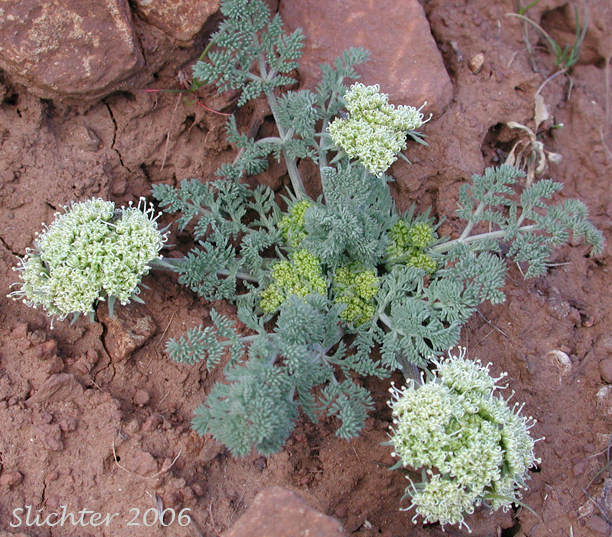 -
- 
The photo at left shows a white-flowered form of biscuit root as seen high in the Columbia Hills..........February 6, 2006.
The photo at right shows another specimen of the white-flowered form of biscuit root as seen high in the Columbia Hills..........March 23, 2021.
 The
photo at right shows a close-up of the newly opening flowers (yellow-form) subtended
by lance-like bractlets below the umbellets. Note also the grayish, hairy foliage.........March
27, 2004.
The
photo at right shows a close-up of the newly opening flowers (yellow-form) subtended
by lance-like bractlets below the umbellets. Note also the grayish, hairy foliage.........March
27, 2004.
Characteristics:
Also known as bigseed lomatium, biscuit root is an attractive
perennial wildflower with several to many prostrate, arched, or erect scapes
arising 10-25 cm from a cluster of lacy leaves atop a thick tuberous base. The
stems are largely leafless. The leaves are somewhat ternate-pinnately or pinnately
dissected into small segments up to 9 mm long and to 2 mm wide. The grayish
herbage of the leaves and stems is sparsely to rather densely covered with either
short, fine hairs or long, soft and unmatted shaggy hairs.
The inflorescence consists of a complex umbel , the smaller
umbellets supported on unequal to subequal rays, the longer ranging from 2-6
cm long. The bractlets below the umbellets are narrow, well-developed and conspicuous,
often equaling or longer than the flowers. The pedicels are 1-11 mm long at
maturity. The flowers are white, purplish-white or yellow. The glabrous fruits
are fairly narrow, oblong or linear-oblong or even elliptic in shape, measuring
from 10-20 mm long, and usually 2-5 times as long as wide.
Habitat:
Biscuit root may be found on dry, open rocky plains and hills
from the lowlands to well up in the foothills.
Range:
Biscuit root is a widespread species of desert parsley, and
is found from southern British Columbia south through Washington and Oregon
to the east of the Cascade summits to central California, and east to Manitoba,
North Dakota, western Wyoming, and north-central Utah.
In the Columbia River Gorge, the white-flowered form may be
found between the elevations of 200'-2400' from near Doug's Beach in the west
and far eastward into the eastern end of the Gorge. The yellow-flowered form
may be found between the elevations of 100'-3000' from near the White Salmon
River east to the area around The Dalles, OR and Dallesport, WA.
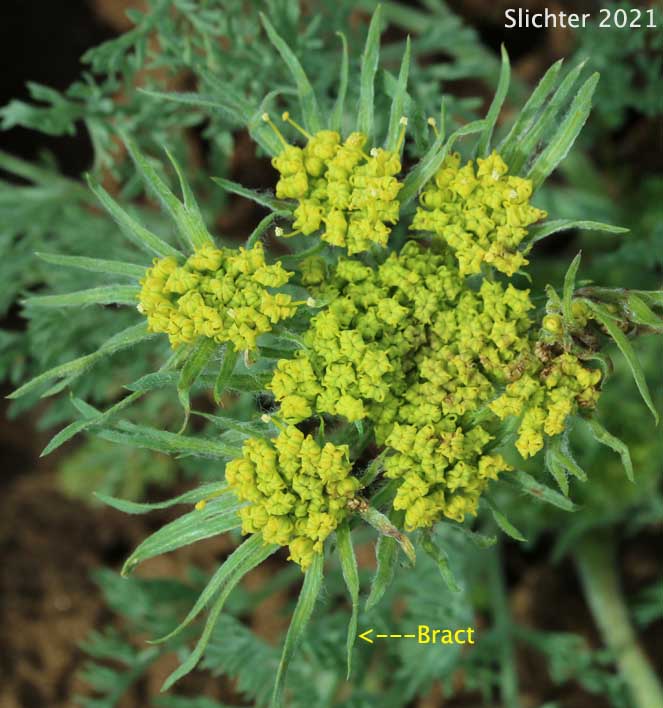 -
- 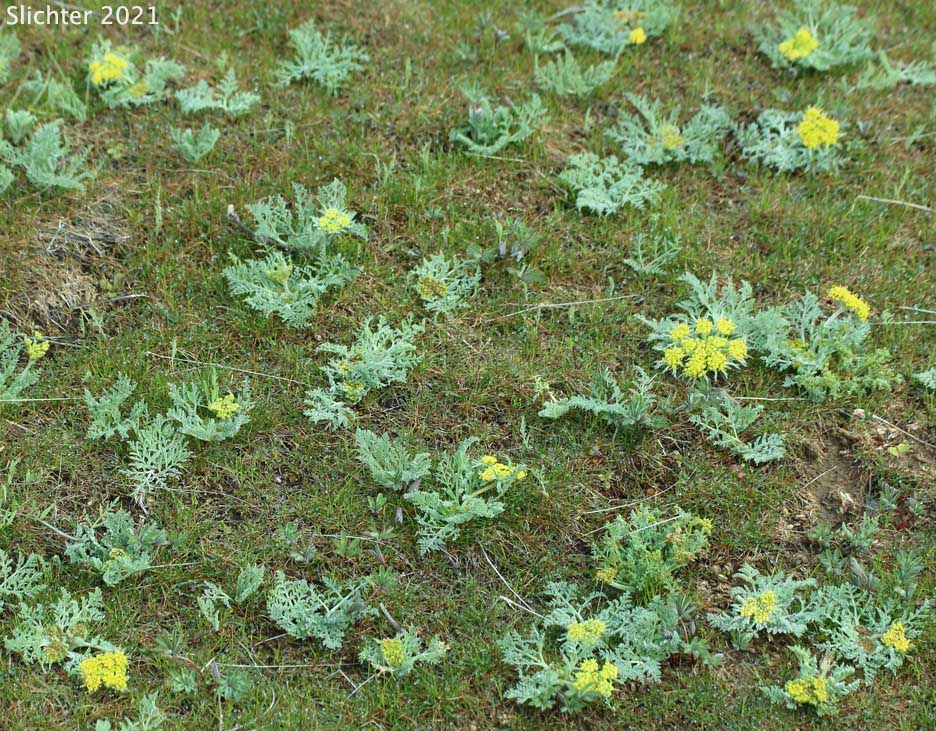
Largefruit biscuitroot beginning to bloom on grassy slopes on USFS lands on Sevenmile Hill near The Dalles, OR......March 4, 2021.
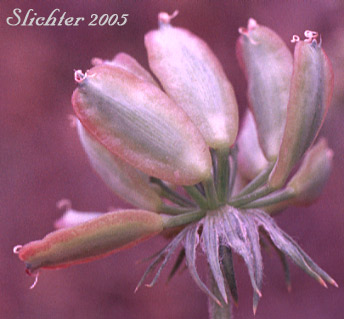
The photo at right shows a close-up of the
fruit of biscuit root as seen near MP 14 along Yellowjacket Road in Umatilla
County, Oregon..........May 26, 2002. The fruits are thick and relatively large
compared to other desert parsleys.
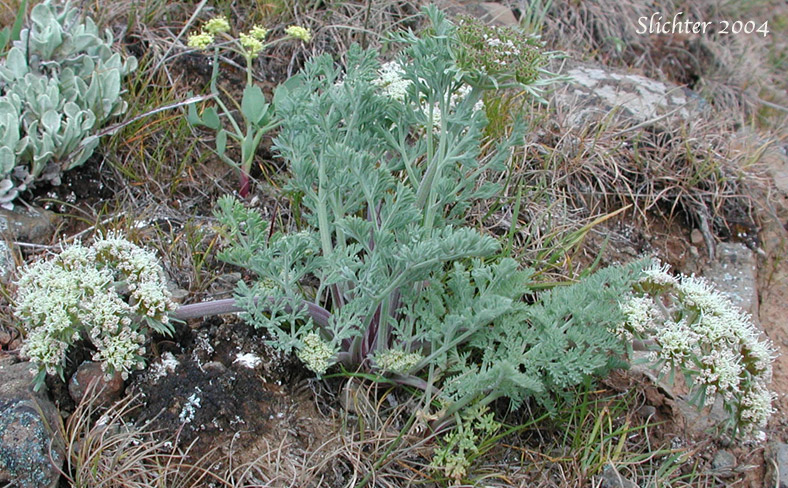 -
- 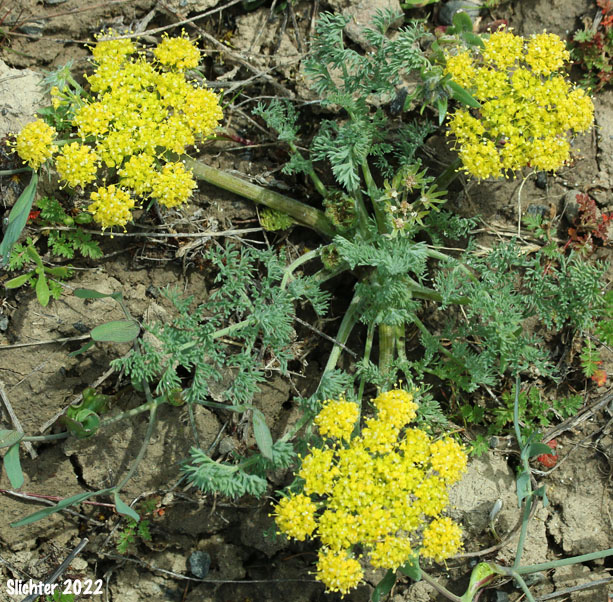
The photo at left shows a white-flowered form of biscuit root as seen high in the Columbia Hills.........March 27, 2004. The photo at right shows a yellow-flowered form of biscuit root as seen in rocky prairie atop Marsh Hill, Memaloose area of the Columbia River Gorge.....March 18, 2022.
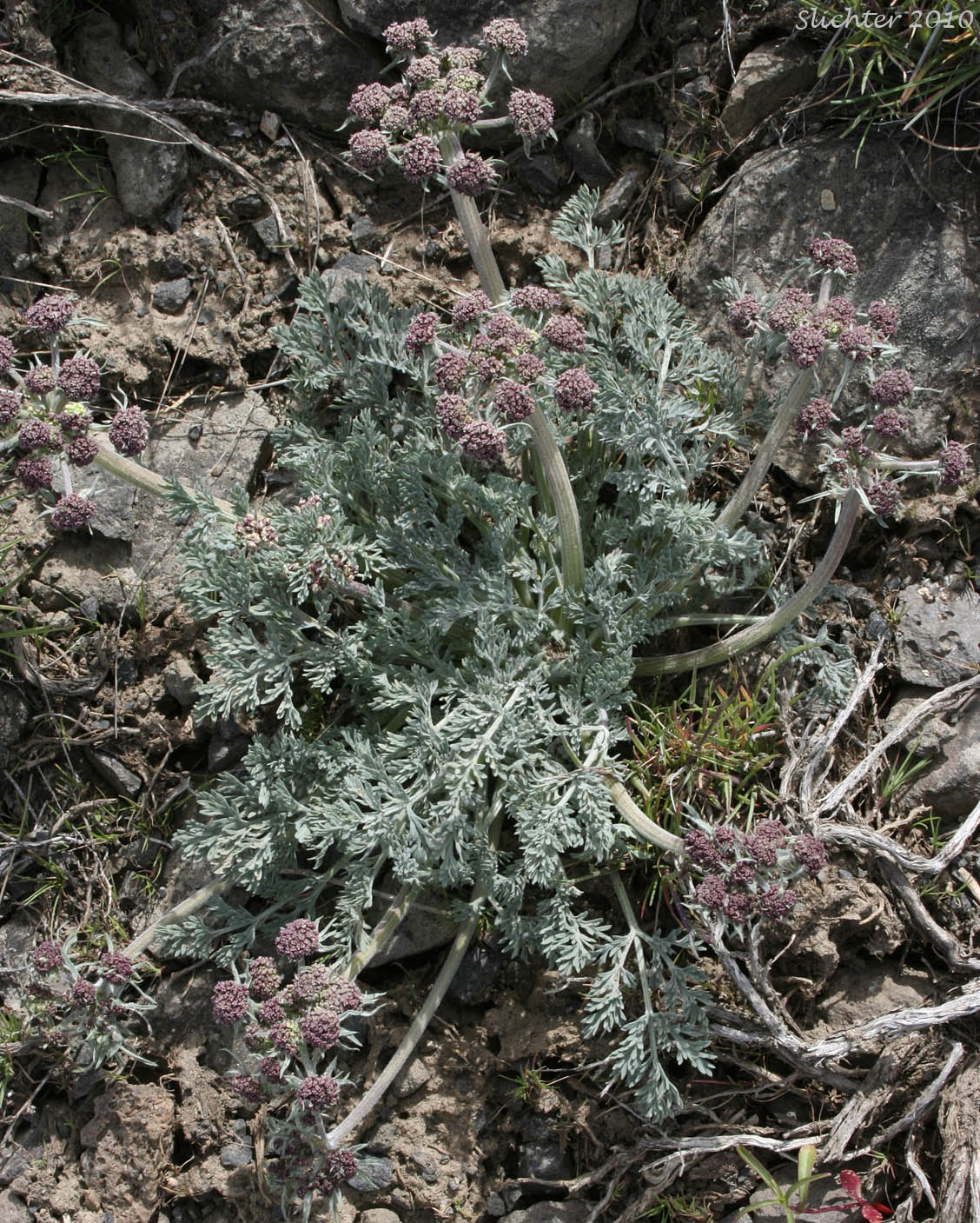 -
- 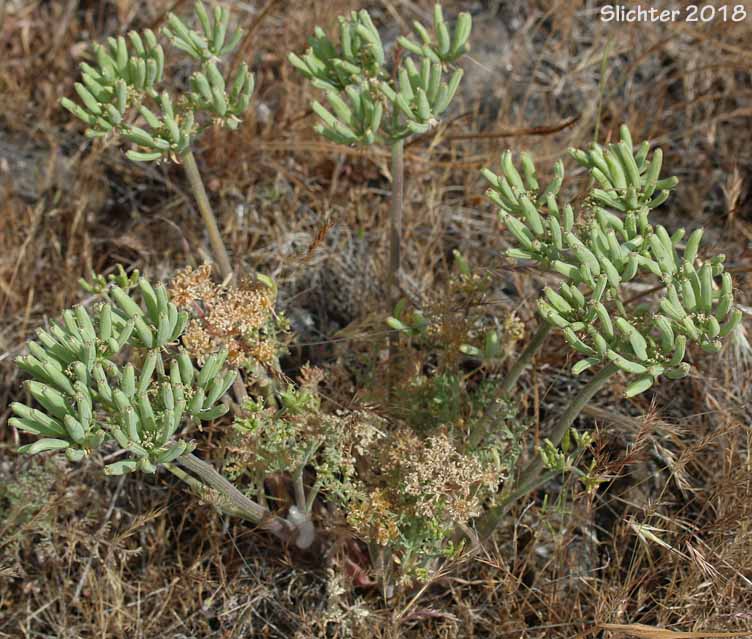
A light-purplish flowered specimen of bigseed biscuitroot as seen at left about one mile east of the high point between Bickleton and Mabton on the Mabton Road, Yakima County..........April 18, 2010. The photo at right shows bigseed biscuitroot with maturing fruits as seen on the benches above the Crawford Oaks trailhead at Columbia Hills Historical State Park.......May 5, 2018.
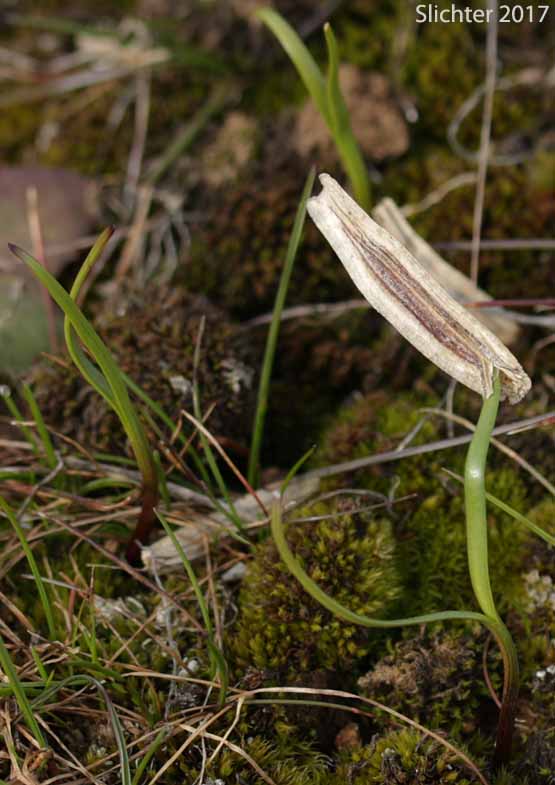 -
- 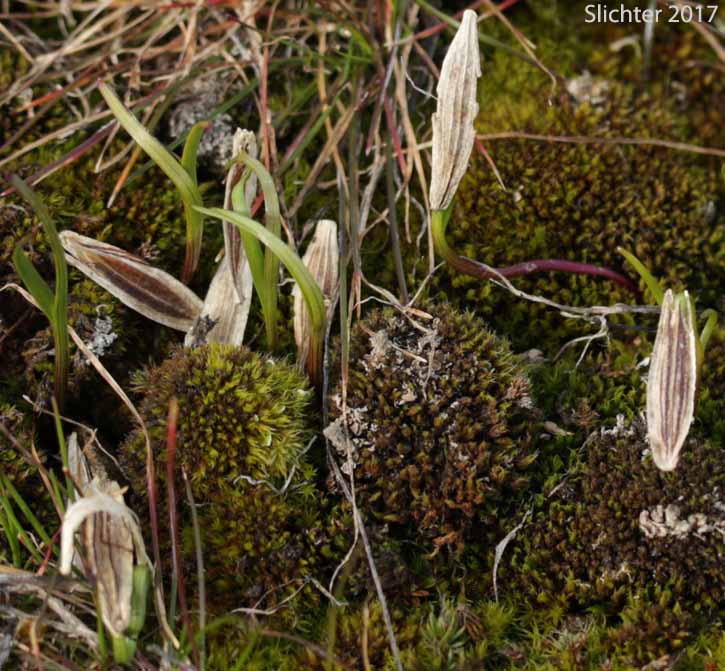
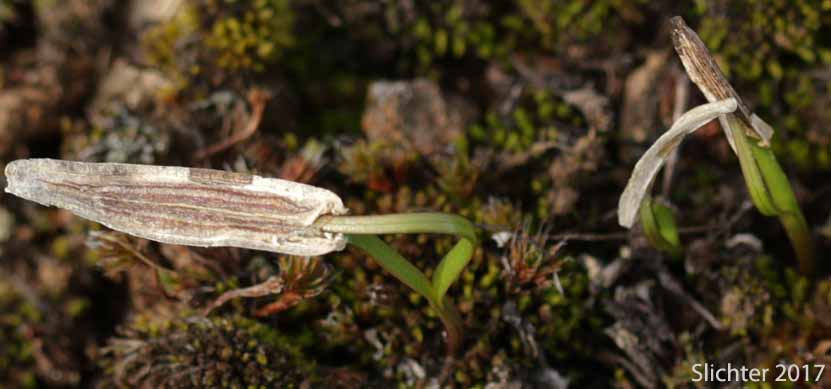
Seedlings of bigseed biscuitroot germinating on Sevenmile Hill to the west of Chenoweth, OR..........March 1, 2017.
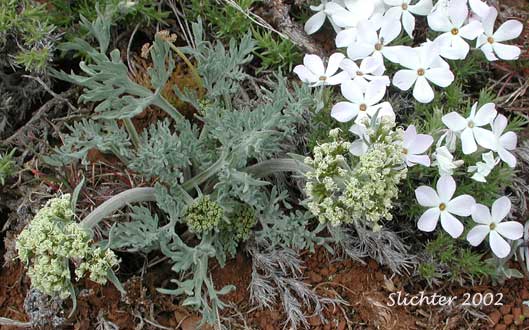
The photo above shows the white-flowered form
of biscuit root with Hood's phlox as seen atop Stacker Butte in the Columbia
Hills........May 2002.
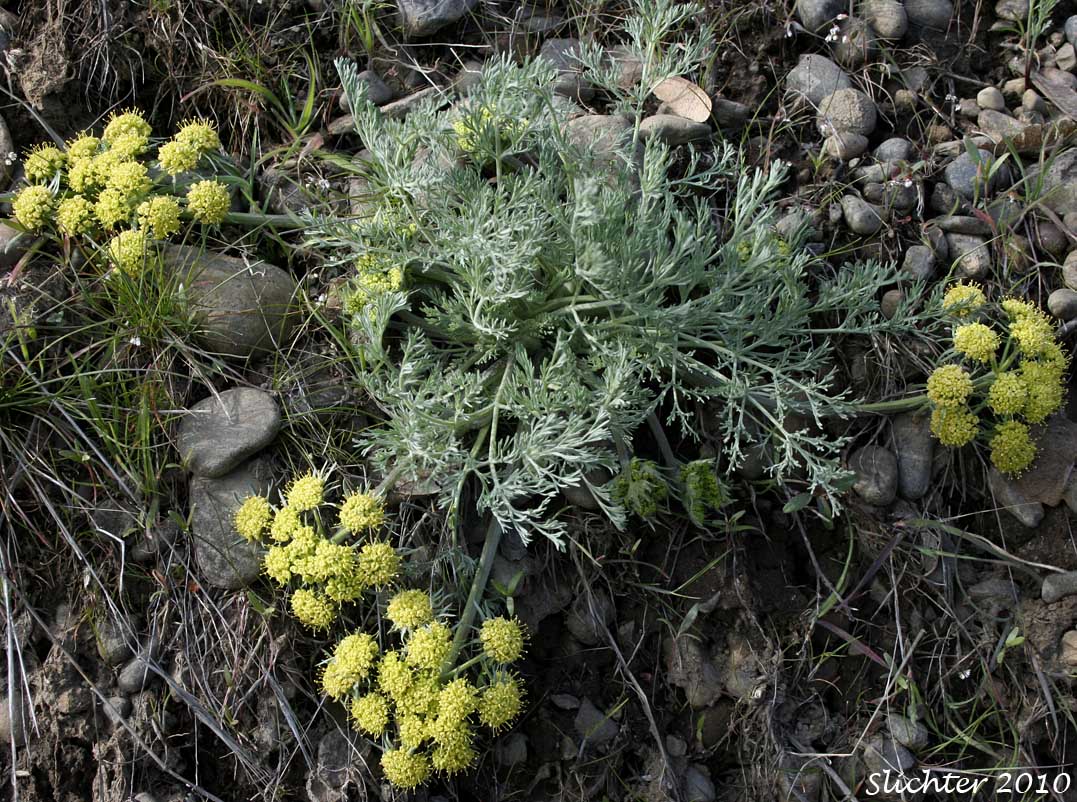 -
- 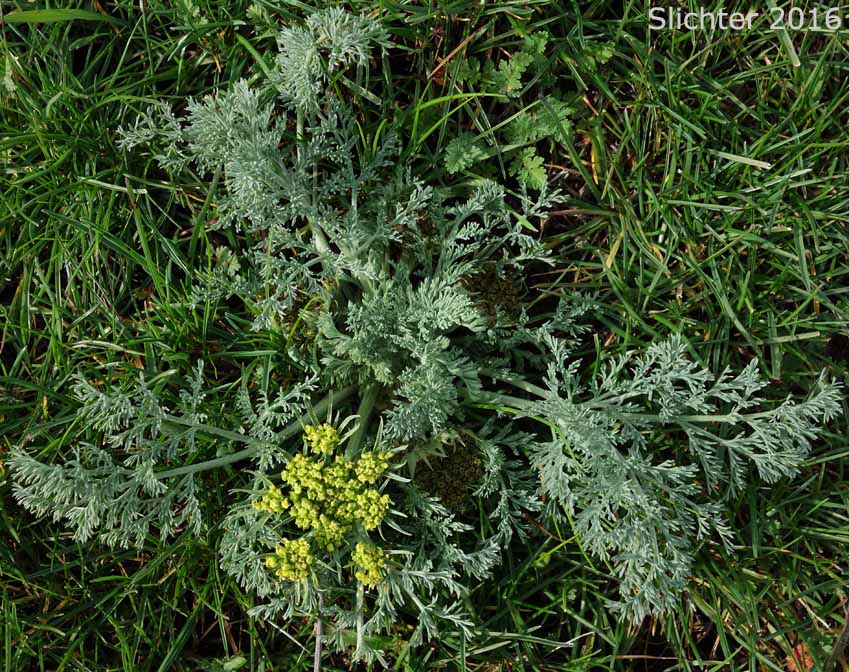
Biscuitroot as seen (left) along the Klickitat Trail, about 2 miles upstream of the Fisher Road Bridge.......March 14, 2010. The photo at right shows a yellow-flowered form of large-fruit biscuitroot on the south facing, USFS slopes of Sevenmile Hill just east of the Wasco County rock quarry........February 15, 2016.
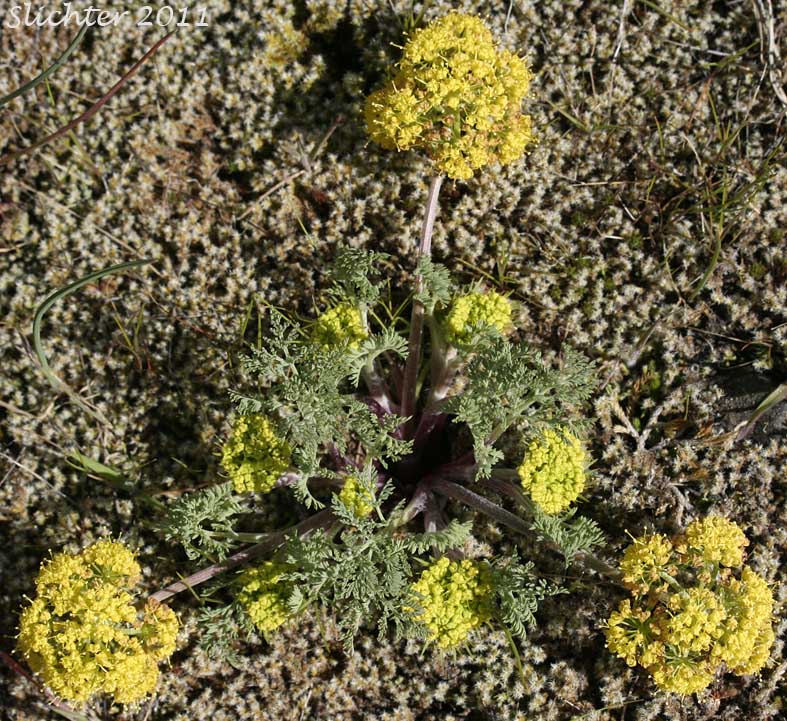 -
- 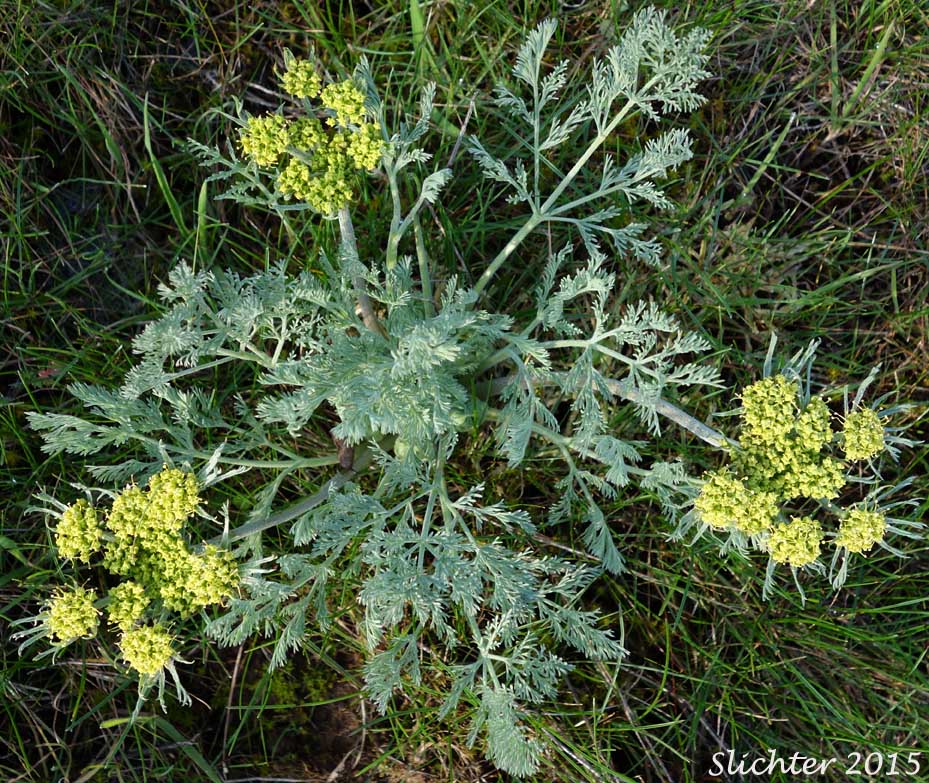 -
- 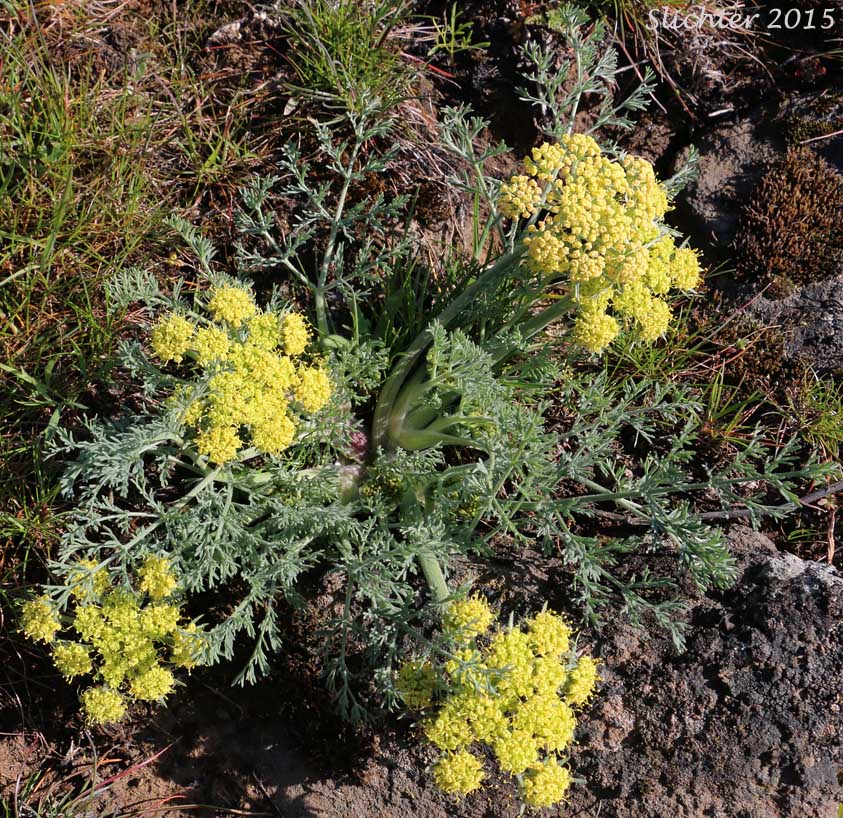
The photo at left shows a yellow-flowered biscuitroot blooming on mossy basalt outcrops in an open field on the north side of old Highway 30 about one quarter mile west of the Memaloose Overlook.................April 8, 2011. The photo at center shows a yellow-flowered biscuitroot beginning to bloom on USFS lands adjacent to the Wasco County Rock Quarry on Sevenmile Hill..........February 13, 2015. The photo at right shows a yellow-flowered biscuitroot as seen on USFS lands adjacent to the Wasco County Rock Quarry on Sevenmile Hill..........March 8, 2015.
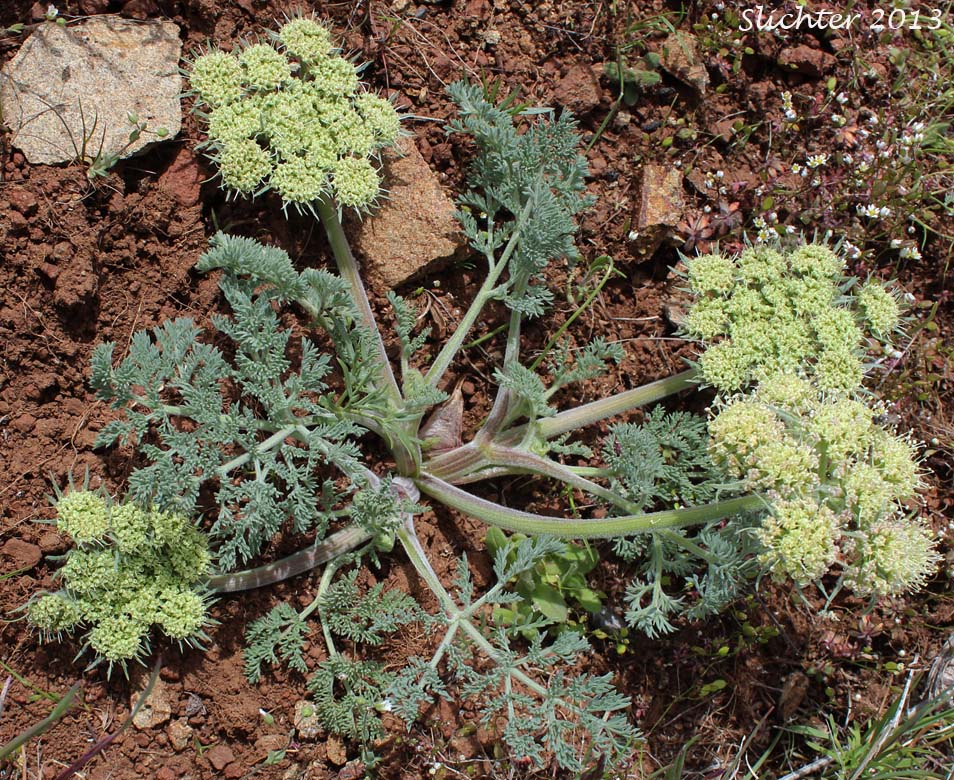 -
- 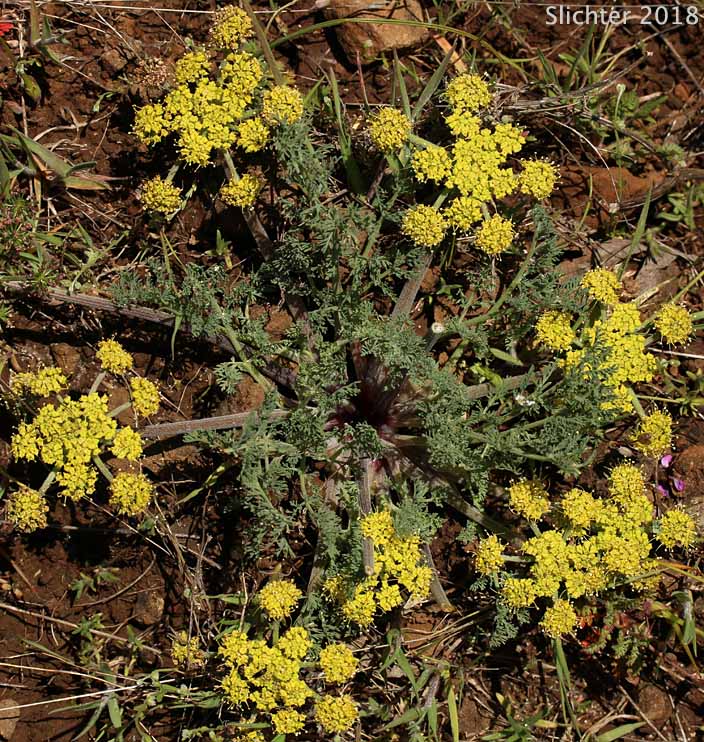
A cream-flowerediscuitroot blooming at left on the crest of the Columbia Hills, Columbia Hills Natural Area Preserve.........April 3, 2013. The photo at right shows a yellow-flowered form of biscuitroot blooming on steep slopes along the Weldon Wagon Road about one and one-half miles east of Husum, WA.......April 19, 2018.
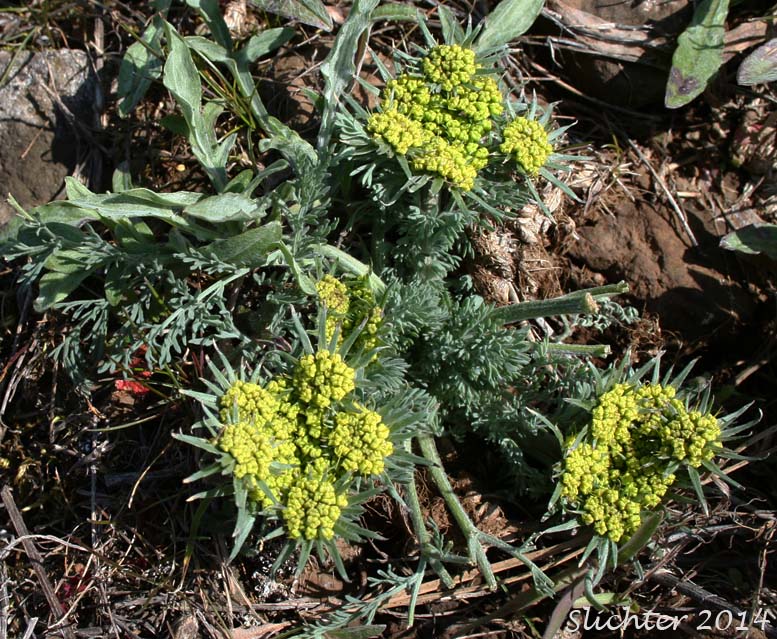 -
- 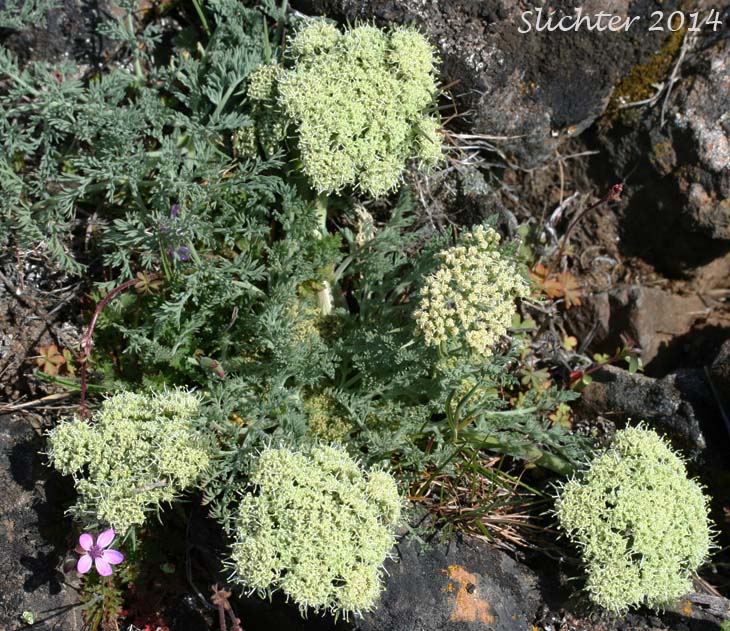
The photo at left shows a yellow-flowered form of biscuitroot beginning to bloom on Marsh Hill along the Memaloose Trail, Columbia River Gorge.........March 23, 2014. At right a cream-colored form of biscuit root as seen from the northwestern corner of the Columbia Hills State Park...........March 24, 2014.
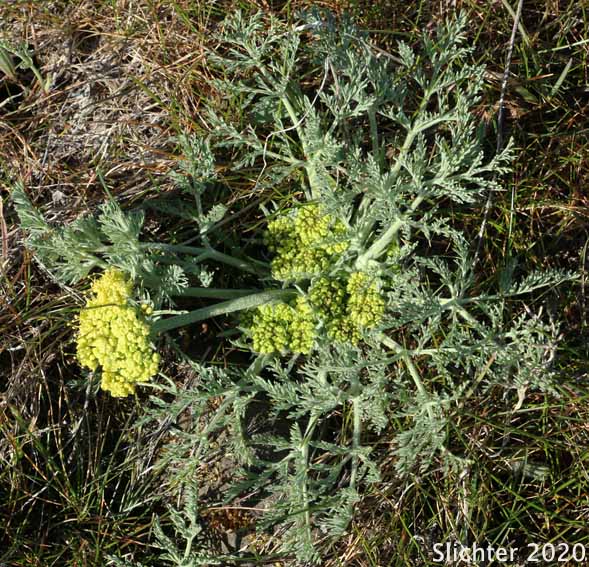 -
- 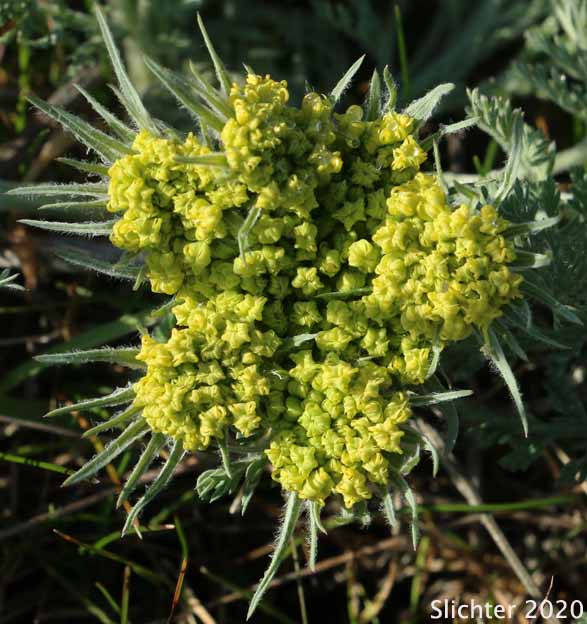
The yellow-flowered form of biscuitroot beginning to bloom on USFS lands at the southern base of Sevenmile Hill......February 21, 2020.
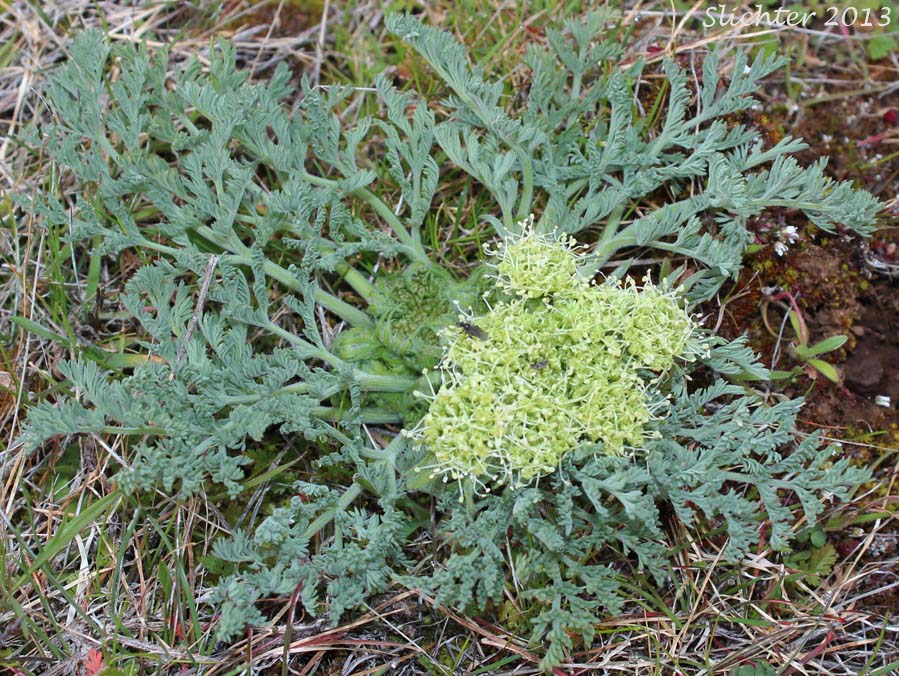 -
- 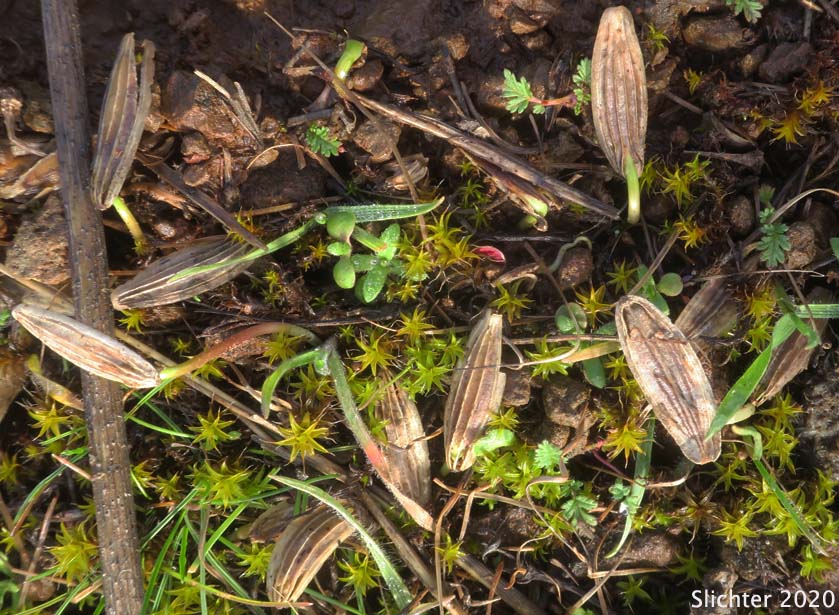
The first biscuitroot blooming at left in the Columbia Hills Historical State Park east of Eightmile Park........March 2, 2013.
The photo at right shows germinating seeds of biscuitroot as seen along the Weldon Wagon Road east of Husum, WA.....January 9, 2021.
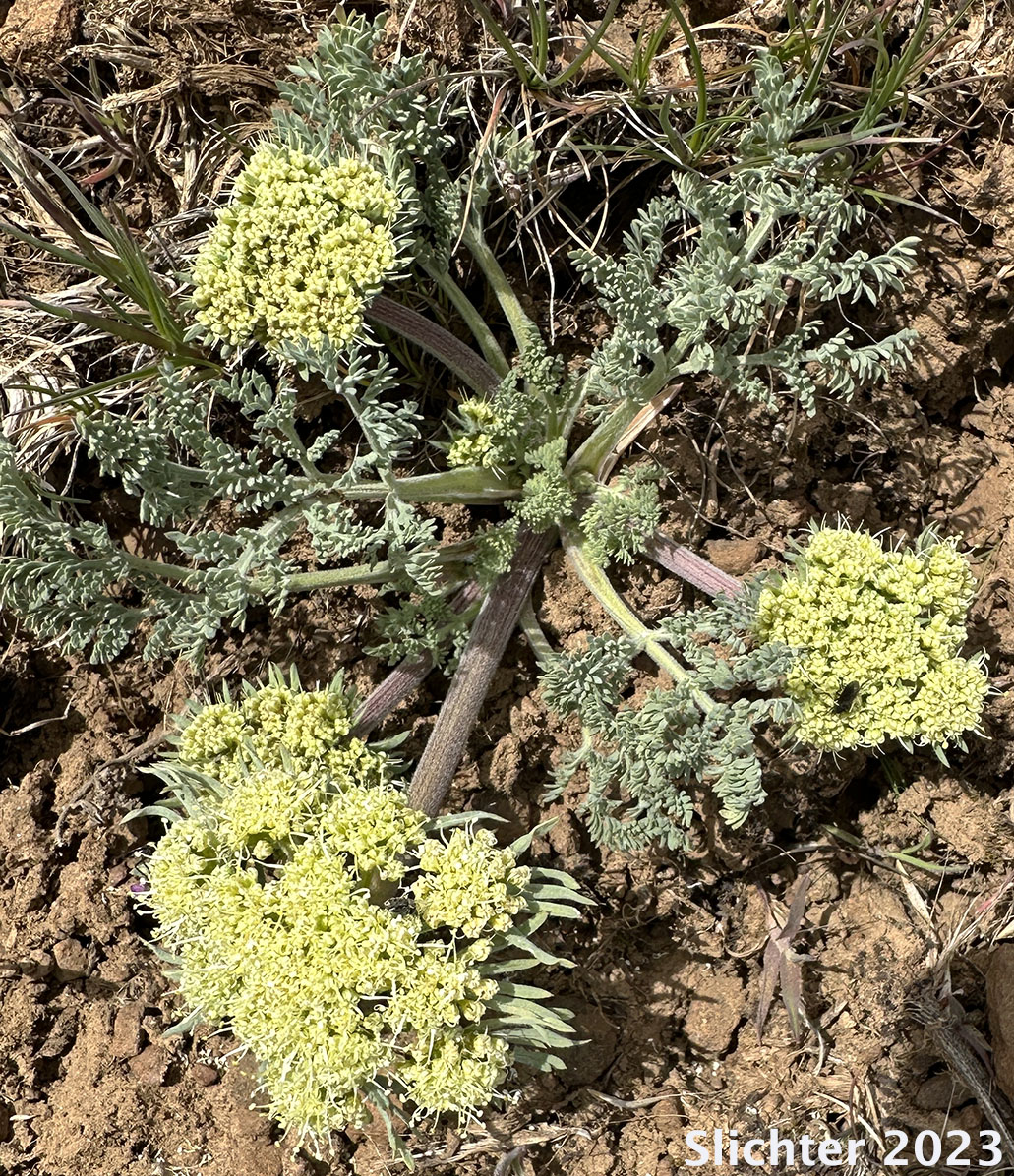
Biscuitroot blooming in the Columbia Hills Natural Area Preserved......April 5, 2023.
Paul Slichter
 The
photo at right shows a close-up of the newly opening flowers (yellow-form) subtended
by lance-like bractlets below the umbellets. Note also the grayish, hairy foliage.........March
27, 2004.
The
photo at right shows a close-up of the newly opening flowers (yellow-form) subtended
by lance-like bractlets below the umbellets. Note also the grayish, hairy foliage.........March
27, 2004.